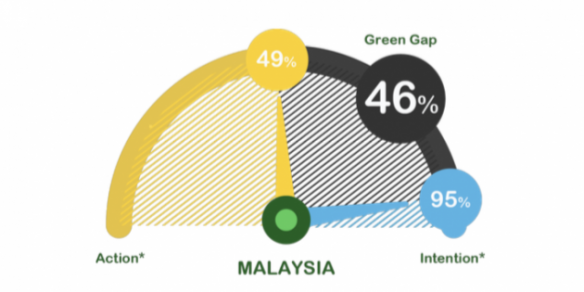Angels in Malaysia lack strong ecosystem support, but doing well: Survey
By Amanda Tiew June 7, 2016
- Pioneer research paves way for more detailed study in the future
- 58% startups invested in, 70% angel funds met or exceed investor goals

WHILE the Malaysian business angel industry has grown in the past year, there is still a lack of ecosystem support and understanding of angel investing in the country, a survey by the Malaysian Business Angels Network (MBAN) and Cradle Fund Sdn Bhd has found.
There is room for growth in terms of educating key stakeholders, developing government support, and forming business angel networks within the country, according to The Emerging Business Angel Market in Malaysia – A State of The Nation survey.
Cradle is a non-profit under Malaysia’s Ministry of Finance tasked with developing entrepreneurship, and was the first secretariat for MBAN, which as of May had 124 registered angels.
The survey, conducted in Kuala Lumpur last year, highlighted that challenges include finding ‘quality’ deals for investors, and formulating private equity deals that provide adequate legal protection for minority shareholders.
“Business angel investing in Malaysia is still new and relatively misunderstood,” said MBAN president Dr Sivapalan Vivekarajah, who said this was one of the primary motivations for conducting the study in the first place.
“As of now, there is almost nothing in terms of research done on angel investing in Malaysia,” he told Digital News Asa (DNA) ahead of the official release of the study today (June 7).
Sivapalan said that this report now forms the foundation for future studies that will shed more light on the angel investing community, and provide policy-makers with current data to guide the formulation of informed and relevant policy tools.
As a seasoned angel investor himself, Sivapalan is well aware that even entrepreneurs don’t understand what angels bring to the table, “so even when angels invest, they [the angels] realise that there is always the need to educate the entrepreneurs.”
MBAN executive director Razif Aziz, also the Cradle chief operating officer, told DNA that there was a need to educate angel investors as well, especially around the investor protection they are afforded, since the survey findings indicate a perception among angel investors that they are vulnerable when making investments.
He stressed that MBAN’s key objectives include building a strong ecosystem that creates the necessary support and understanding of angel investing in Malaysia.
This includes educating angels themselves on shareholder agreements and term sheets – many angels had expressed concern over what they perceived as the lack of legal protection for minority shareholders, and the need for strong legal and financial regulation.
One area MBAN and Cradle hope to work on is in developing Malaysian term sheets instead of adopting Western-centric ones that may not be suitable, said Sivapalan.
Still, the challenges in Malaysia have not stopped angels from making bold investments or chalking up impressive returns, he argued.
“I know of an angel who invested RM2 million (about US$500,000) into a startup after just hearing them [the team] at our regular monthly MBAN pitch sessions,” he declared.
These monthly pitch sessions have also afforded Sivapalan a window into the emerging angel investing scene.
“There is a big difference in the type of questions that get thrown at the startups from when we first started these sessions last year versus now, and that is really healthy,” he said.
Thanks to MBAN’s monthly pitch sessions and other activities, Razif said that within the past 12 months alone, it has been able to present 93 deals to current and potential business angels, making an average of almost eight deals a month.
Other key findings

The MBAN-Cradle survey had profiled 20 MBAN members, finding that their investments were typically made with a lifespan of five years (click infographic on the right to enlarge).
 The angels have made investments in 85 companies, or an average of five investments per angel, with RM1.7 million as the median angel investment. [RM1 = US$0.24]
The angels have made investments in 85 companies, or an average of five investments per angel, with RM1.7 million as the median angel investment. [RM1 = US$0.24]One interesting data point was the fact that up to 58% of companies invested in and 70% of investment funds met or exceeded the angel investor goals in 2015.
“Considering that our ecosystem is still forming, that high success rate was a surprise to me,” said Sivapalan (pic above).
On average, each angel had a minimum individual net worth of RM3 million or a combined annual household income ranging from RM180,000 to RM42 million.
While angels are typically known to be highly private individuals, rarely sharing the amount or the companies in which they’ve invested, the survey revealed that other general traits shared by angels is their hands-on attitude with the companies that they are minority shareholders in.
Their profile showed high levels of education, with 100% being college graduates and 39% holding post-graduate degrees.
Other investment pinpoints included grouses about ineffective senior management, numerous operational delays, and distribution issues within the startup.
“The people and execution are the main issues here – it is interesting that technology is almost never an issue when it comes to angel investments,” said Sivapalan.
Recommendations to continue improving the Malaysian business angel community included educating key stakeholders on business angel investing, and developing success stories to encourage the growth of the industry.
Government support also remains a key component to developing ‘Silicon Valley Malaysia,’ as Sivapalan phrased it, with the expansion of tax incentives for investing in companies being one specific area MBAN is looking to lobby the Government for.
Hoping to capture more granular data moving forward, MBAN will definitely be running another survey in the future, said Sivapalan.
“This is only the beginning of angel research. There needs to be a lot more moving forward,” he added.
Related Stories:
Malaysian angels expected to invest US$3mil over next 12mths
MBAN hopes for mindset shift among angel investors
Hey angels, it’s not just about the valuation
For more technology news and the latest updates, follow us on Twitter, LinkedIn or Like us on Facebook.


